Computing & IS
DGRT & CoCIS Discuss Modalities to Enhance Graduate Enrolment & Output
Published
1 year agoon
By
Jane Anyango
A team from the Directorate of Graduate Research and Training (DGRT) led by the Director, Prof. Edward Bbaale on 4th May 2023 visited the College of Computing and Information Sciences (CoCIS) to collect views that will enable the Directorate to undertake comprehensive policy reviews relating to graduate research and training as the university moves towards being research-led.
The Directorate also wanted to pick lessons from CoCIS management on the best practices and points of success as well as the pressing policies that are a roadblock to graduate research and training at Makerere University.
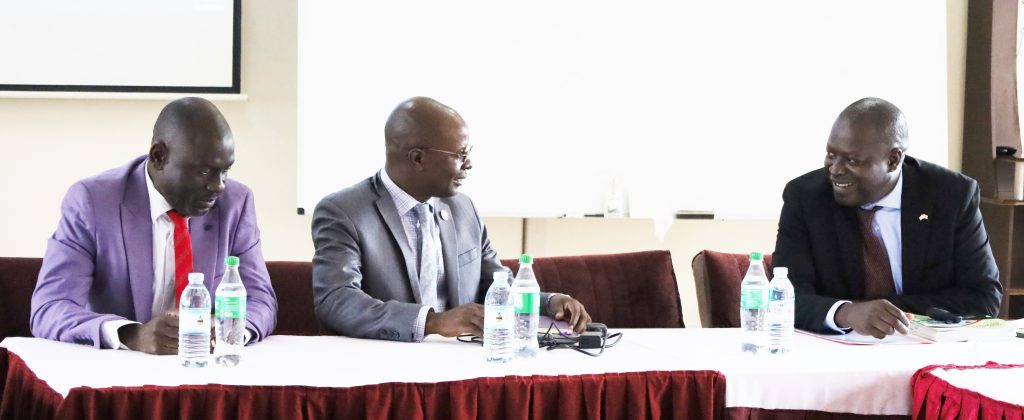
The DGRT and CoCIS meeting was attended by the Principal Prof. Tonny Oyana and his Ag. Deputy, Dr. Peter Nabende, Deans, Heads of Departments, graduate programme coordinators, and academic and administrative staff handling graduate programmes.
The discussion focused on strategies for increasing graduate enrolment and graduation output at the college, a sustainability plan for managing graduate education and research and ensuring that the process of programme accreditation is expedited by concerned stakeholders.
Other issues discussed were the need to have a structure for the PhD by research, funding for graduate studies as a major bottleneck for graduate completion, incentivizing graduate supervision and examination, teaching workload vis a vis research and other mandates. Also discussed was the need to streamline communication, management and monitoring of graduate training and research in the university and attract post-doctoral students to tap into their intellectual property and research output.
Calling upon staff to reorient their minds and energies towards the university’s strategic direction, the Director DGRT Prof. Edward Bbaale said the main aim is to entrench graduate training at Makerere University by gradually reducing undergraduate enrolment and increasing doctoral and postgraduate intake and programmes.
“The target is that by 2030 we should have 30% of our students being graduate students, but currently we are around 12%. So, we are still less than half of the target in our strategic plan, but also out of the 30%, we envisage having, 10% must be foreign students which should be internationalized as much as possible. Currently, our share of international students is only 2%.”, Prof. Bbaale said.
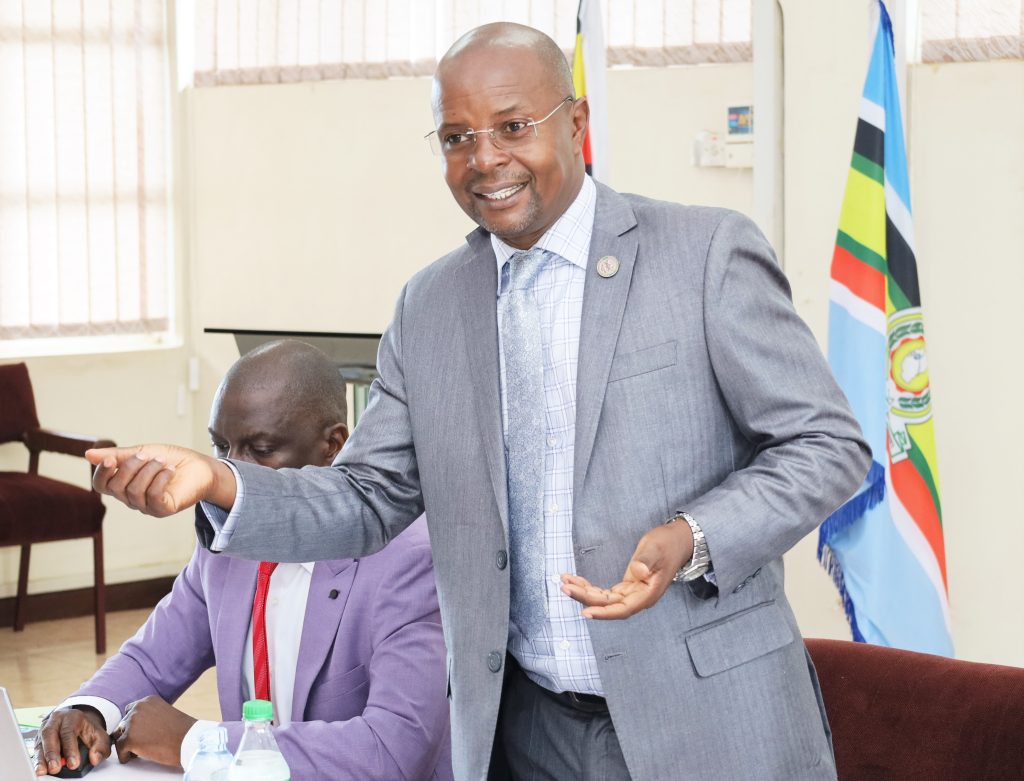
In addition to the prioritization of graduate training, the Director said, the university has identified other key building blocks of the research-led agenda including the packaging and marketing of research into marketable products for appropriate adoption and adaptation in order to impact the community.
Prof. Bbaale implored staff to form research groups and grow a multidisciplinary culture of research saying, there is a university policy before the Senate on the establishment of an institute and a centre of excellence which also defines a research group.
Bbaale highlighted that some of the key mandates of the DGRT entail initiating and reviewing policy to provide a conducive environment for graduate training and research, disseminating policies and ensuring that they are adhered to.
He reported that the Directorate had embarked on reviewing a number of policies to provide a conducive environment for graduate training and innovative research. These include the Graduate Handbook, the Postdoc policy, the university research agenda 2018 and the curriculum for the PhD by research.
“Counterparts in South Africa are challenging us with this aspect of post-doc policy. They enjoy a great harvest of quality research because of the post-doc aspect. And so even as Makerere, we need to have a serious post-doc arrangement.”
“And the other very important aspect is that we want to make sure that we have every PhD whether taught or by research must have a career program document so that we can follow through the student’s milestones and the other issues that we are concerned with”, The Director explained.
Giving the background to the college engagements with DGRT, the Deputy Director in charge of Administration and Graduate Training Assoc. Prof. Julius Kikooma said the consultations stem from the retreat that the Vice Chancellor organized some two months ago where he invited all heads of units as well as senior academics, and discussed this question of centering graduate training in the view of the new strategic direction of Makerere University.
Sharing trends on intake, enrollment and graduation statistics for the last five years in CoCIS, Prof. Kikooma expressed the Directorate’s commitment to addressing challenges to graduate training.
“We want to have that open discussion where we can speak around the issues that could be part of the roadblocks or if we use today’s speaking, If we see them as potholes, we really want to see what are those potholes in the graduate student’s journey at Makerere University.
We want to see how best we can work together so that we can try to improve the graduate student experience and create a new resolve around increasing the outputs from graduate students.” Kikooma explained.
Sharing the accreditation status and the programs in the college, Prof. Kikooma said it was important that the programs are approved for the benefit of students and the university.
“ When your students go through these programs they don’t have issues. Where programs are being recognized, students are able to be admitted on other programs elsewhere, and, they might actually want to know whether the programs they studied are actually credited.”
Kikooma also shared CoCIS statistics in terms of enrolment and graduate graduation outputs noting that the college has a good number of structured graduate programs despite the size and number of students.
“When we look at you as courses in terms of your size compared to the rest of the other colleges and, when it comes to graduate programs, you really have a good number compared to other bigger colleges. So that’s already a plus in terms of where the university wants to go because the university wants to become more known for graduate training and the outputs of graduate training.
“You have seven master’s programs, four postgraduate diploma programs, and five PhD programs. And also we must commend you. I think you are one of the few colleges that have PhD programs that are structured and organized around coursework and dissertation, which is a good thing already. It’s a good starting point for us”, Kikooma commended.
Prof. Kikooma however, decried the long time taken to clear the accreditation of some new and old programs pledging to work with the college, the Academic Registrars department, the Senate and the National Council for Higher Education to expedite the process.
Kikooma also noted that some programmes were missing on the DGRT website while others recorded high admission numbers but, with the graduation curve going down partly attributed to CoVID.
Now that COVID is somehow under control, Kikooma advised college management to come up with mechanisms to reverse the curve of the graduation output upwards.
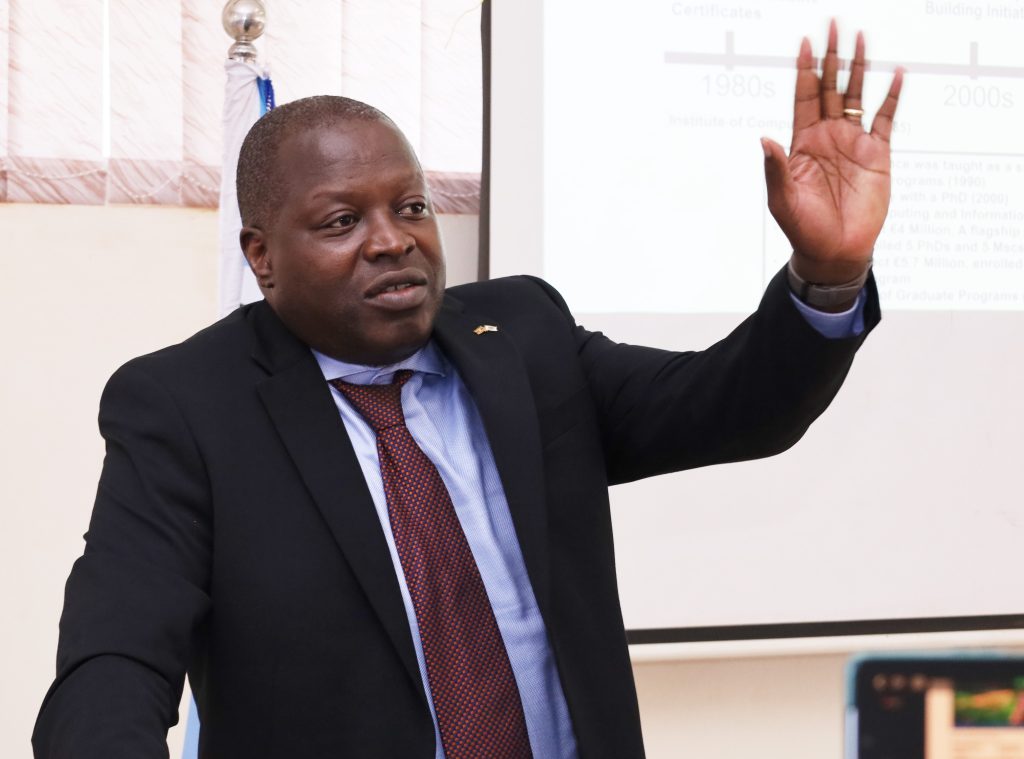
The Principal CoCIS Prof. Tonny Oyana said the college can do better on the grounds that has a good research infrastructure with a grants officer, graduate coordinators at the college level and a school supporting graduate activities.
“We also have also set aside the seed money where students apply and we have supported a number over the last four years and in March recently, 10 PhD students we are supported with the Mak-RIF as another Avenue”, Prof. Oyana said.
Presenting the college strategy to improve graduate training, the Principal attributed the low graduate completion rates to a lack of funding for self-funded students as they have to meet both academic fees and other social-economic obligations. Oyana stressed it was critical for the university and stakeholders in the education chain to support graduate students through tuition.
Highlighting the growth strategy from the 1980’s with only two PhDs, Oyana said the college currently has over 50 staff with PhDs with various programs attesting to the fact that research facilitation is good.
Prof. Oyana expressed pride that the college focus has been on research and innovation that has churned out graduates who have established startups concentrated around Kampala suburbs doing a good job in terms of helping grow the economy.

“We do a lot of data analytics, we support businesses, knowledge, insights…. and we have been successful to win grants because we work as a team with other colleges like the College of Health Sciences.
We have some flagship programs like Library, Computer sciences, Information science and software engineering. The top 10% of our students enrolled in these programs get AAA’s, and we get the cream of the nation in the college and that is why we have charming Innovations that have come up in the college”, Prof. Oyana stated.
The Principal also highlighted areas of research priority including Artificial Intelligence and Data Science, Software systems, network systems, cyber security, informatics technology, Library science, records and information-seeking behaviour in agriculture and finance with the AirQo environmental sensing as a big activity.
In research, Prof. Oyana reported that the college has supported faculty and student research activities to a tune of Shs. 250 million. In contrast, in a pace of four years, the number of publications increased to 78.
With a student population of 4000, Prof. Oyana said in future, the teaching and research have to be more personalized via video with the introduction of Robotics technology in the college to be blended with traditional techniques of classroom learning.
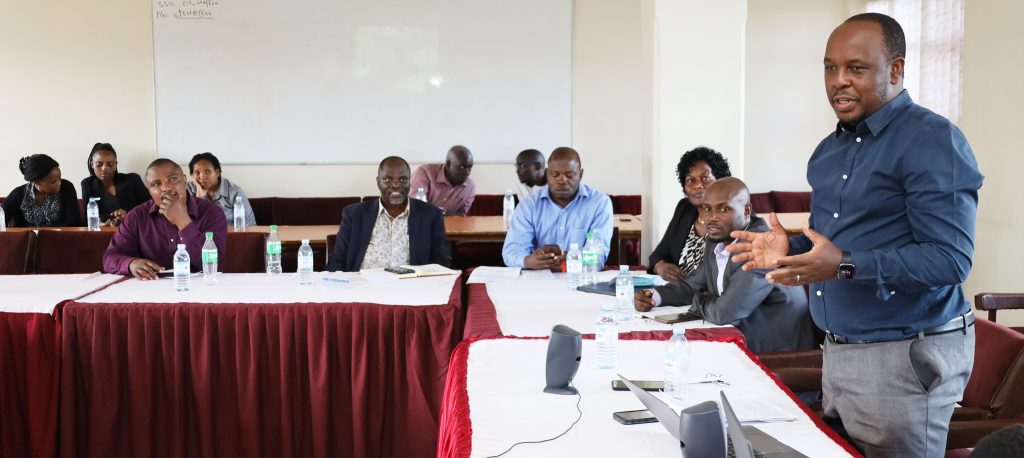
With support from the government, university and donors, the Principal pledged to build a world-class college with automation by leveraging the expertise and research in air quality and artificial intelligence among others.
He said the college has been blessed with foreign partners who have provided generously in terms of money. He said, Google, so far in the college’s history, has been the largest donor and has so far earned the college about four million U.S. dollars.
You may like
-
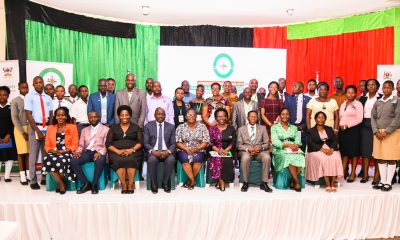

Mak develops new model to aid teaching of Maths in Lower Secondary Curriculum
-
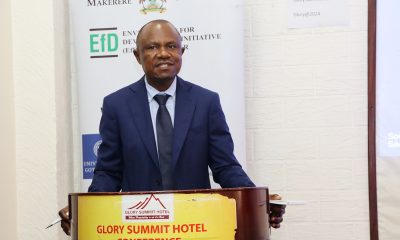

EfD-Uganda Holds Inaugural AGM: Celebrates Milestones and Outlines Future Plans
-


Prof. Buyinza Mukadasi Appointed Acting DVC Academic Affairs
-
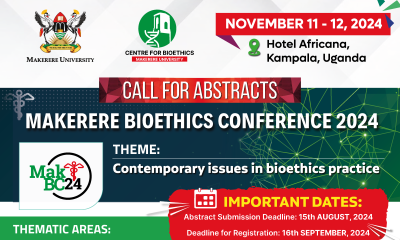

Call for Abstracts: Makerere Bioethics Conference 2024
-
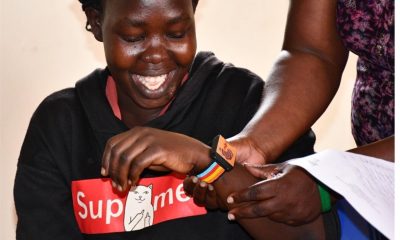

Mak Researchers Partner with Safe Bangle Technologies to Roll out a Real-Time Domestic Violence Reporting Bracelet
-
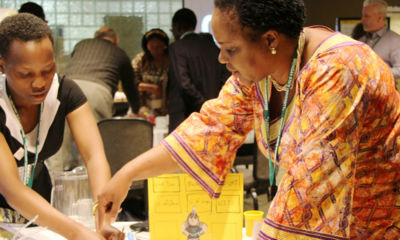

African Futures Research Leadership Program: Cohort 5 – Call for Scholars
Computing & IS
CoCIS Biannual Newsletter Jan-Jun 2024
Published
1 month agoon
June 25, 2024By
Jane Anyango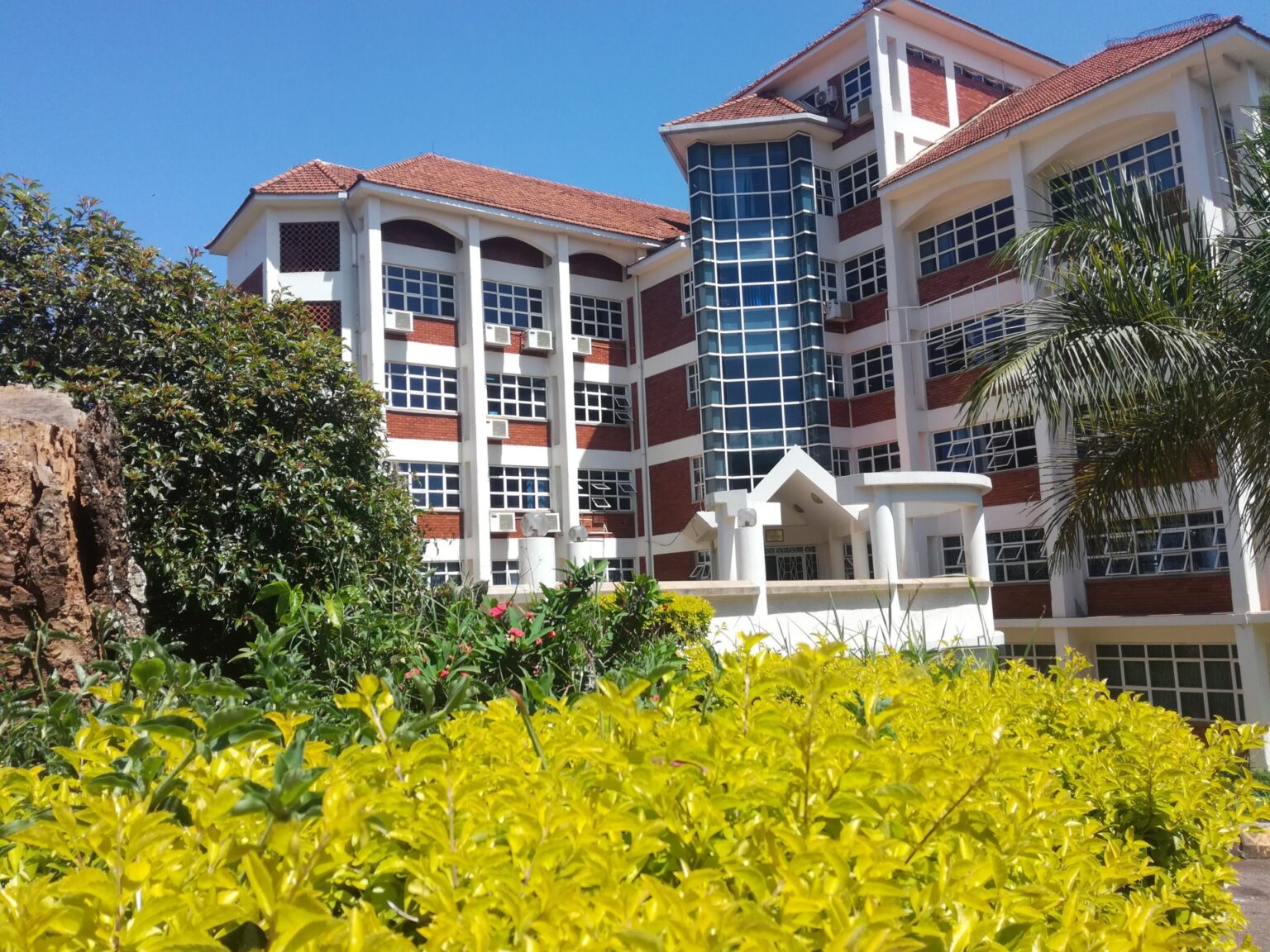
The College of Computing and Information Sciences(CoCIS) is pleased to introduce to you the first biannual newsletter (January- June 2024). The issue highlights major achievements recorded in the period under review. We have made tangible progress towards the achievement of our goals. On behalf of the management of CoCIS, I thank you for your dedicated service.
Computing & IS
EASLIS Holds 2-Day Pedagogical Re-Orientation Workshop For LIS/RAM Teaching Professionals
Published
1 month agoon
June 24, 2024By
Jane Anyango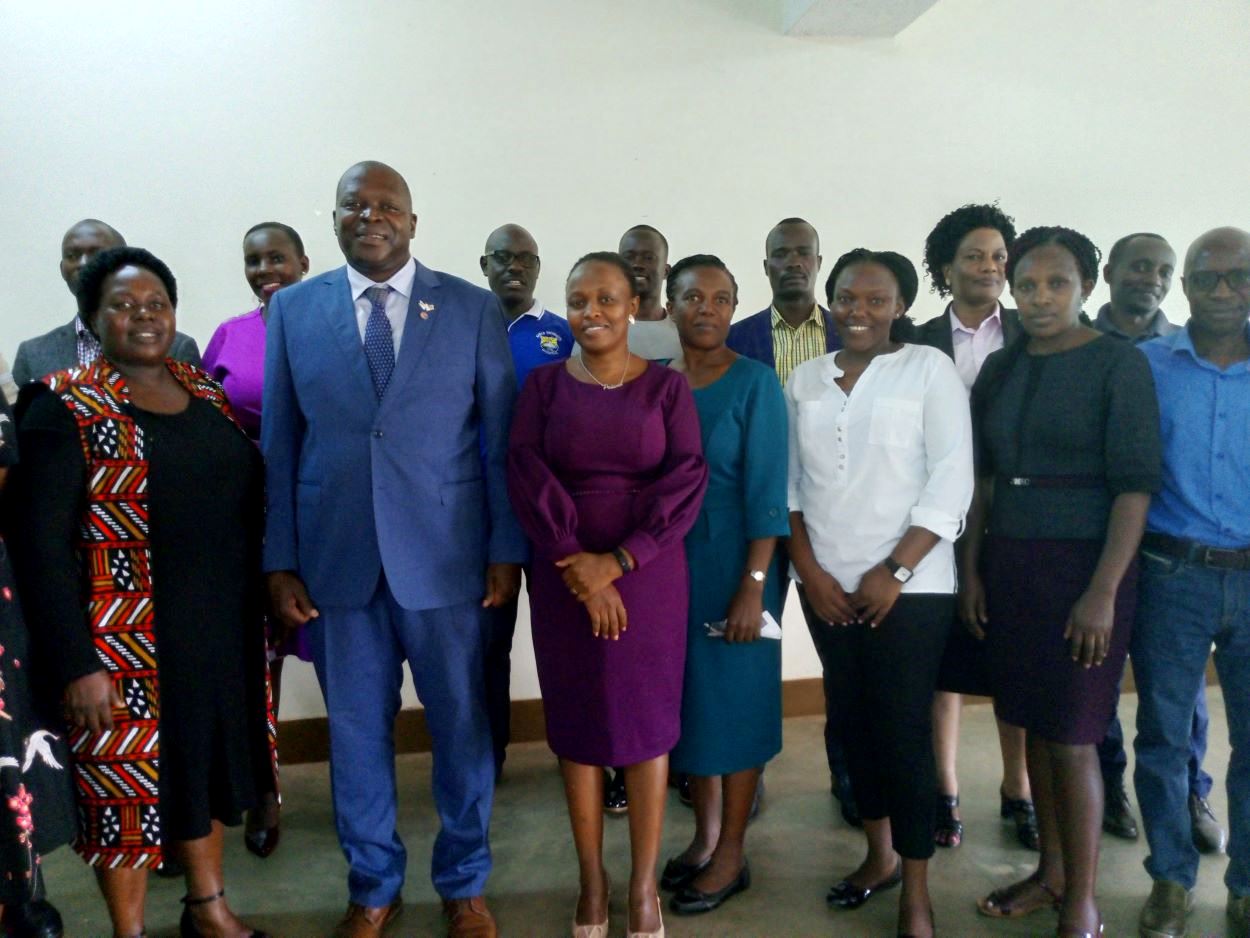
The East Africa School of Library and Information Science (EASLIS) last week (18th – 19th June, 2024) held a two day Library & Information Science (LIS), and Records and Archives Management (RAM) Teaching Professionals Pedagogical Re-Orientation Workshop.
The event held at Makerere University College of Computing and Information Sciences (Mak CoCIS), Block B attracted a number of teaching staff at various ranks from Ugandan universities, and the region at large.
In his opening Remarks, the Principal-CoCIS; Prof. Tony Oyana thanked the leadership of EASLIS for holding such an important workshop aimed at improving teaching and learning. He emphasized the importance of pedagogical orientation for teaching staff noting that good subject matter knowledge and good research does not directly translate into good teaching.
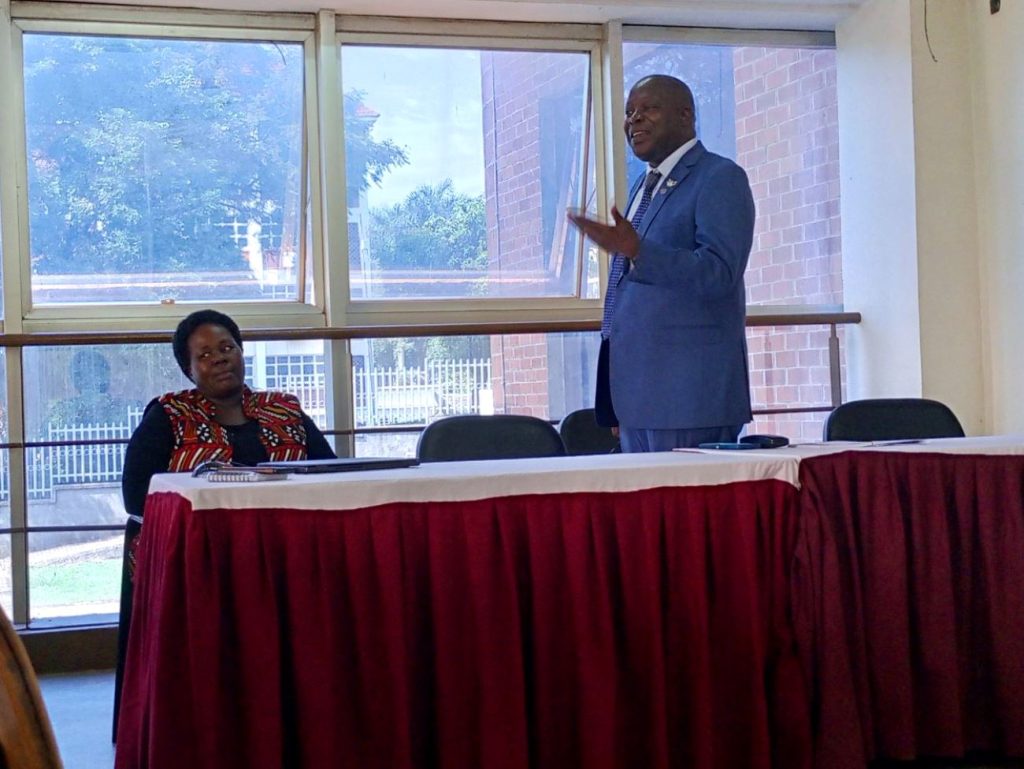
He also highlighted a number of other important aspects that contribute to effective learning, including the need to create conducive learning environments, emotional intelligence through the ability to understand and relate to the learners and called for the need to deal away with challenge of superiority attitudes manifested in the by some African scholars that sometimes impedes free interaction with learners thereby affecting effective teaching.
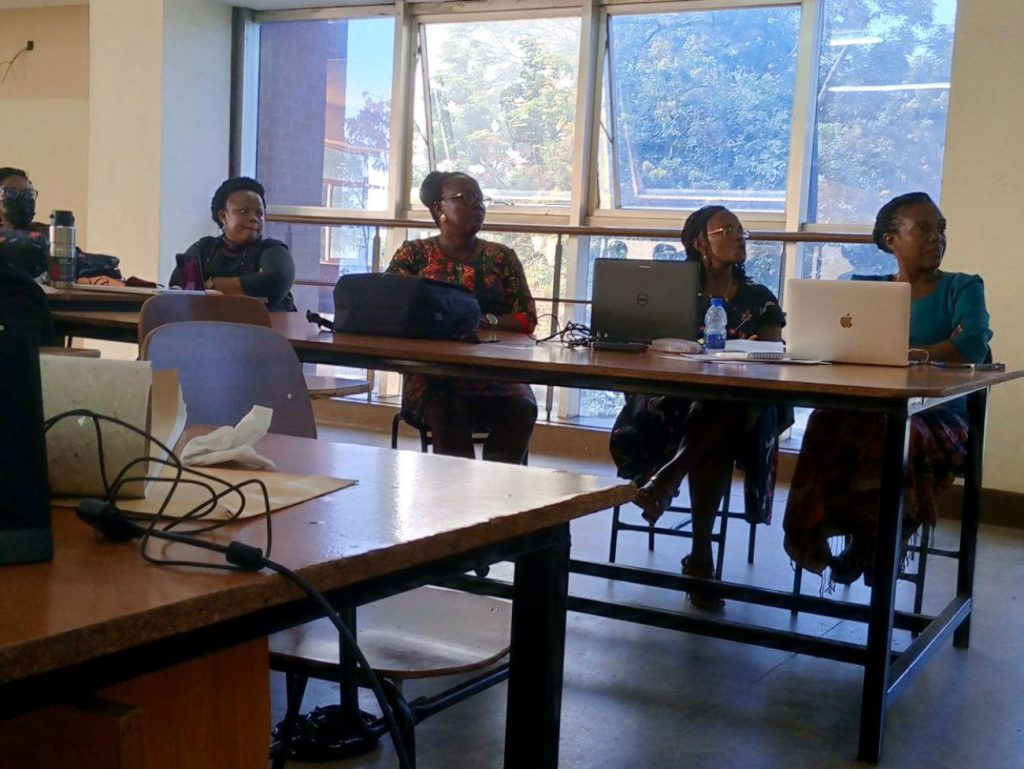
He noted that everybody has a propensity to learn, but that people learn at different paces hence the need to give attention to every learner. He also emphasized the need for teaching staff to appreciate cultural diversity in learning environments.
The Dean-EASLIS, Dr. Sarah Kaddu giving an overview of workshop noted that the workshop aimed at achieving the following objectives;
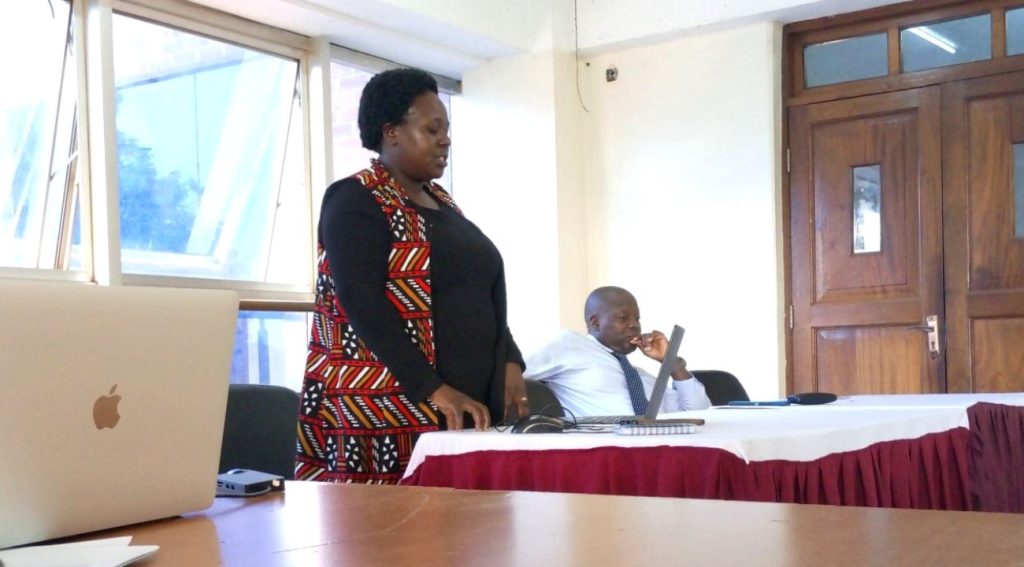
- Improved teacher-student support, relations and classroom management
- Better alignment of course goals, instructional strategies, objectives
- Improved lecture planning, content delivery and course evaluation
- Enhanced knowledge and skills in content sourcing and preparation
- Partnership brokerage and networking among LIS/RAM professionals in Uganda and in the region.
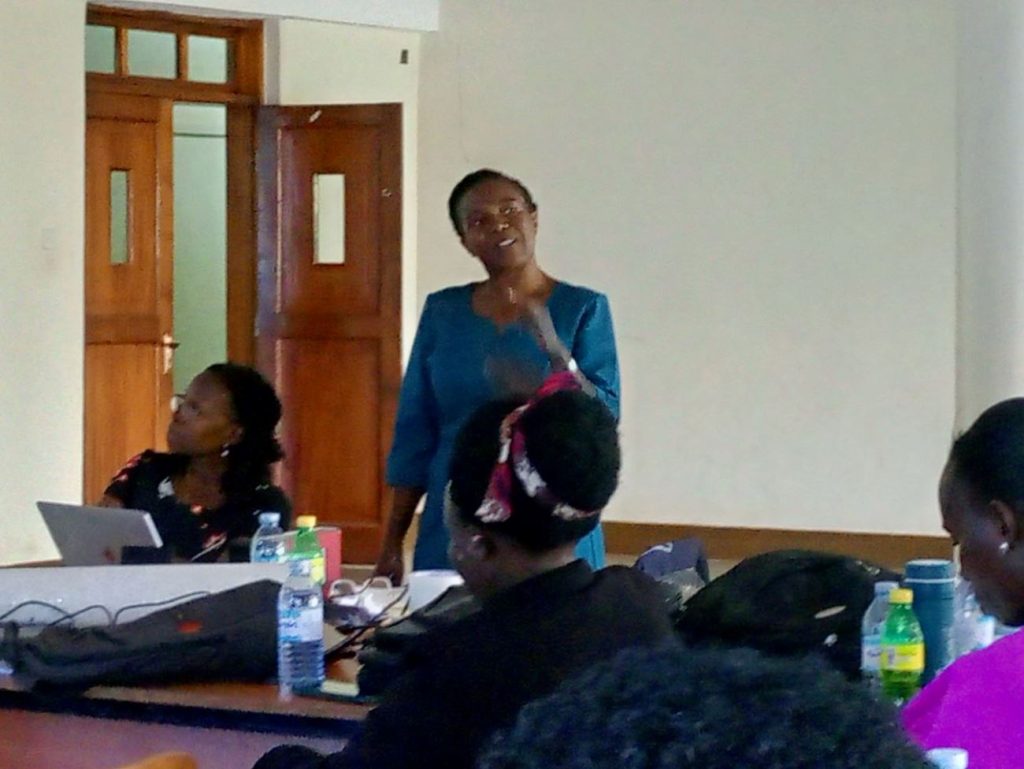
The participatory workshop was facilitated by Dr. Josephine Najjemba, Dr. Rebecca Nambi, and Dr. Kajumbula; a team of experienced staff in pedagogy training from Makerere University College of Education and External Studies, School of Education.
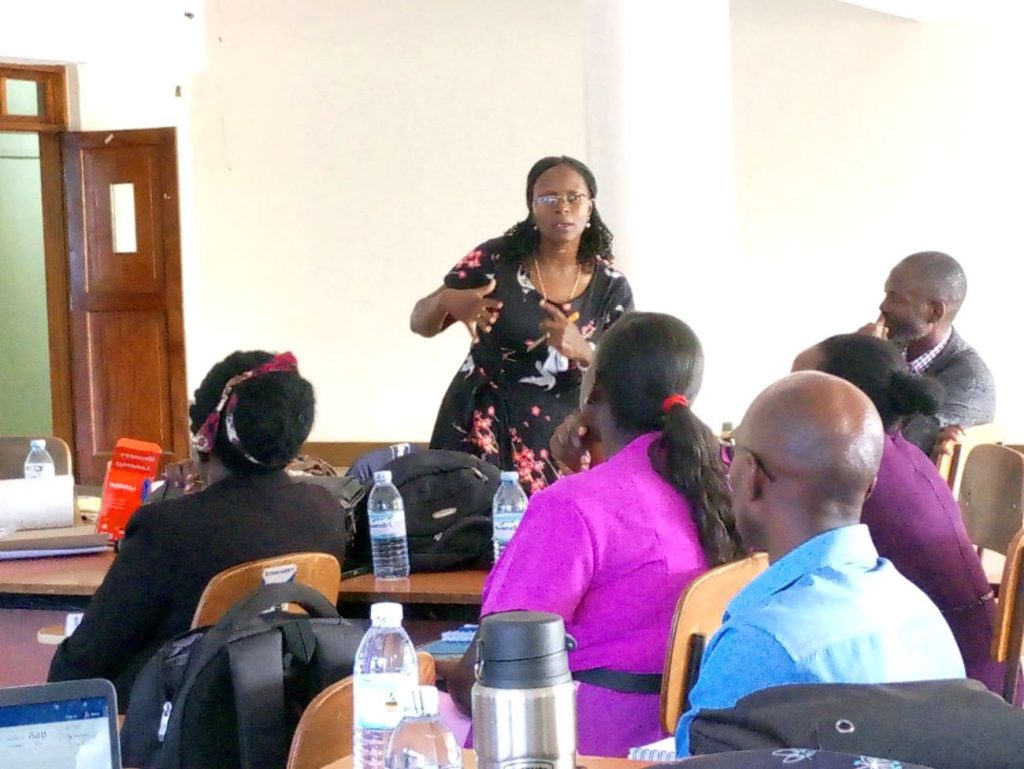
The workshop presentations focused on the following areas:
- Education Foundations – Teaching Philosophies
- Education Foundations – Learning Theories
- Pedagogical Models: Teacher Centered vs. Learner Centered Strategies
- Teacher and Learners Roles in the Learner-Centered Pedagogy (LCP)
- Leadership in pedagogical practice
- Assessment: Principles of Assessment, and
- Technology enhanced learning
The workshop concluded with a plenary session, and award of certificates to the participants.
Computing & IS
Uganda Launches AI Health Lab at Makerere University
Published
2 months agoon
May 31, 2024By
Jane Anyango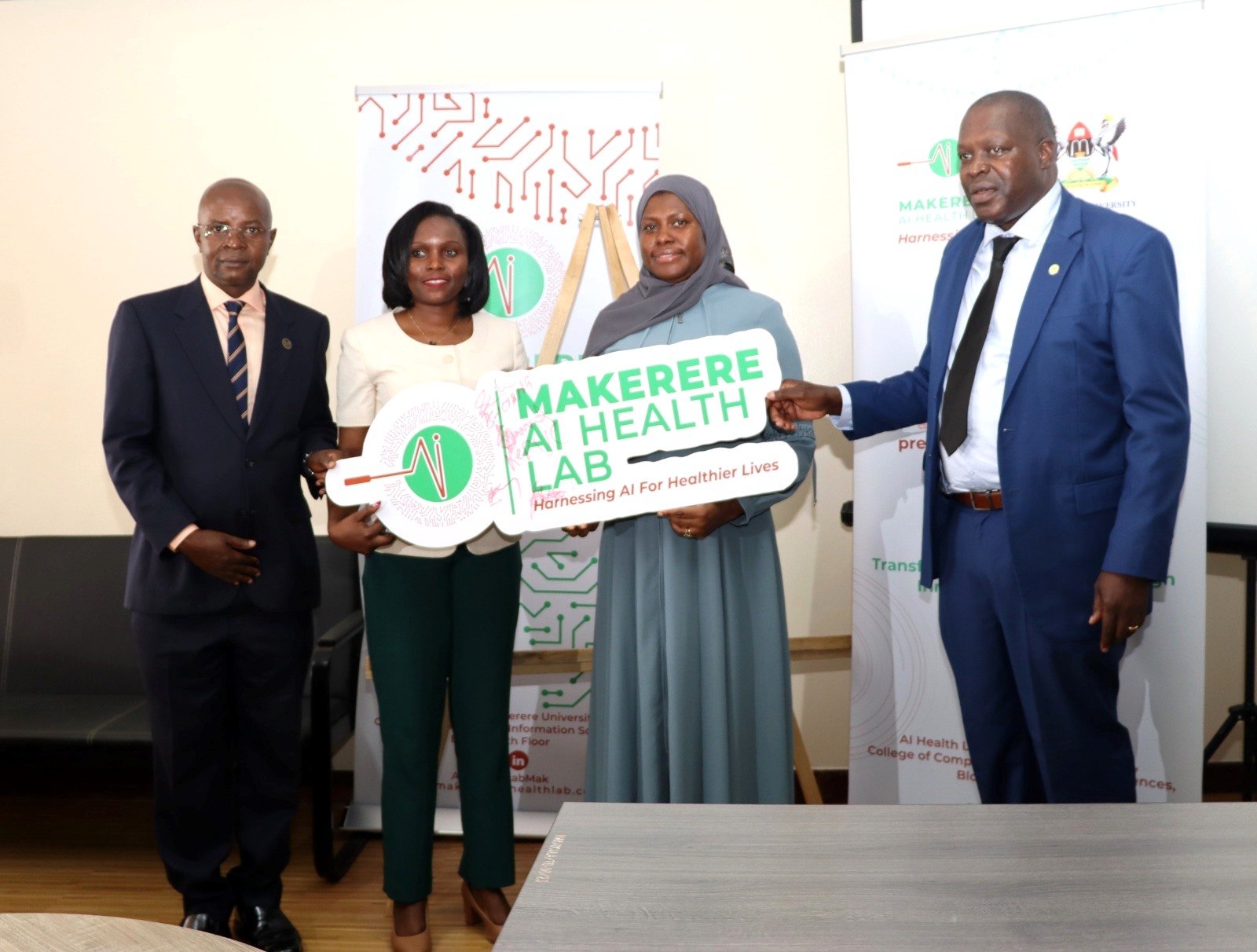
In a significant stride towards enhancing healthcare through technology, the Government of Uganda, in collaboration with Makerere University, has inaugurated the Artificial Intelligence Health Lab. This pioneering initiative aims to revolutionize healthcare delivery using artificial intelligence (AI), marking a crucial advancement for the nation. The lab is situated in Block B, College of Computing and Information Sciences
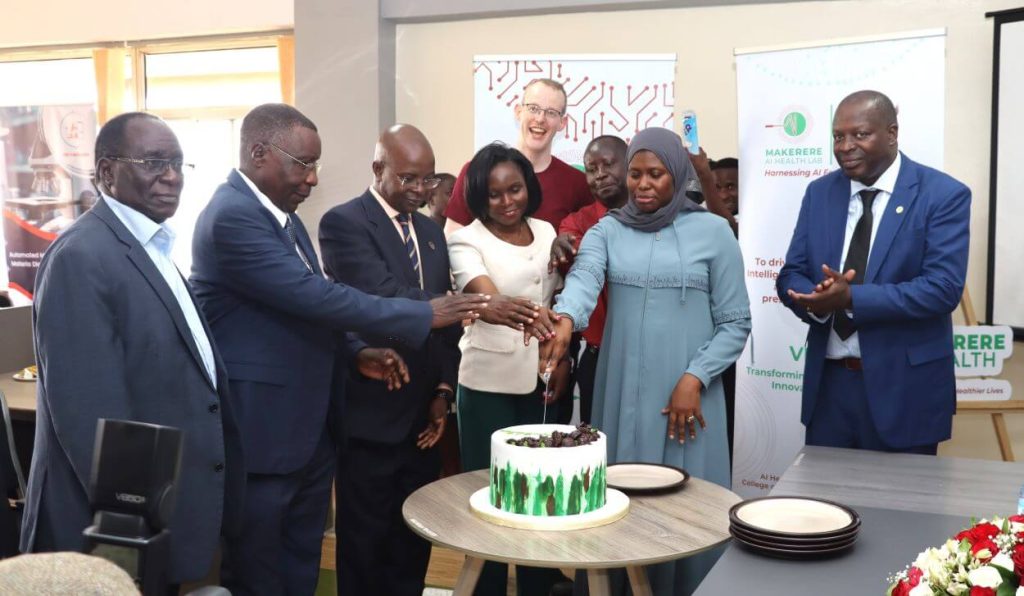
Launching the lab on 30th May 2024, the Permanent Secretary of the Ministry of ICT and National Guidance, Dr. Aminah Zawedde highlighted the importance of this development. “Today marks a momentous occasion as we unveil the Artificial Intelligence Health Lab at Makerere University. This milestone signifies not just a step forward for the university but for our entire nation as we enter an era of innovation and advancement in healthcare through artificial intelligence,” she remarked.
Dr. Zawedde emphasized the transformative power of AI in healthcare, noting its potential to revolutionize diagnostics, treatment plans, and personalized care. She acknowledged the government’s ongoing efforts to integrate AI into healthcare through initiatives like telemedicine platforms, health data analytics, and AI-driven solutions in medical imaging and drug discovery.
However, she stressed the need for ethical and responsible AI deployment, addressing algorithmic biases, patient privacy, and equitable distribution of AI benefits.
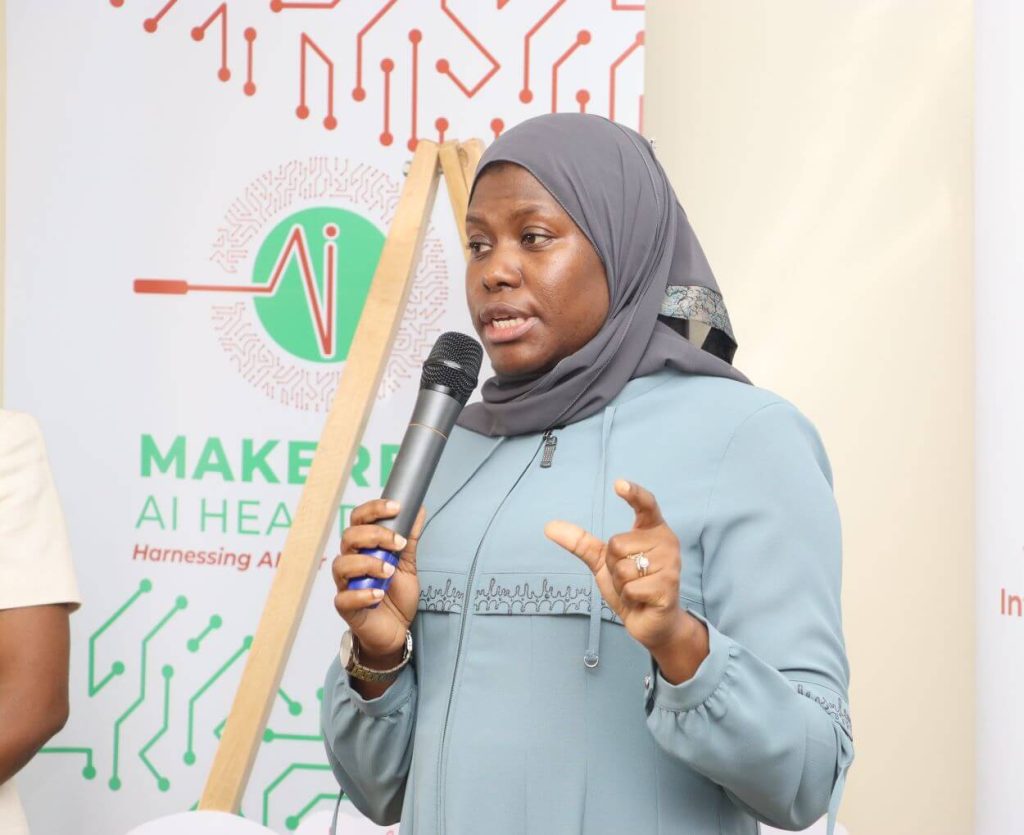
“The Ministry of ICT & National Guidance is committed to supporting AI adoption in healthcare through policy guidance, financial support, capacity building, and infrastructure development,” Dr. Zawedde stated. She called for collaboration among government agencies, academia, healthcare providers, and technology partners to advance AI initiatives responsibly.
Government Emphasizes Homegrown Solutions and Digital Priorities
Dr. Aminah Zawedde, highlighted the importance of prioritizing locally developed solutions to better understand and effectively address national challenges. She outlined five key priorities for Uganda’s digital transition, focusing on infrastructure, accessibility, digital services, cybersecurity, data protection, privacy, digital skilling, and innovation.
Regarding infrastructure and connectivity, the government aims to expand coverage to 70% of the country within the next five years, with ongoing projects supported by the World Bank and China. This initiative targets essential institutions like schools, hospitals, administrative offices, and innovation hubs.
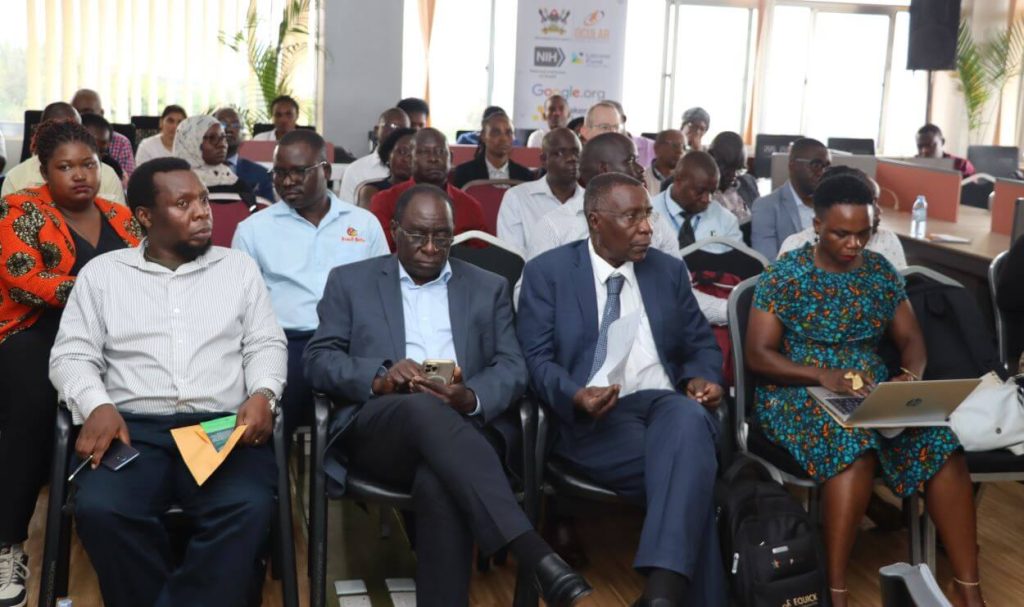
Ensuring accessibility of gadgets, particularly smartphones, is another critical focus area. Recognizing the importance of these devices for accessing digital technologies and apps, efforts are underway to lower costs through measures such as tax waivers and local manufacturing.
Additionally, the government is prioritizing the transition of services online to enhance efficiency, transparency, accountability, and ease of doing business. This move aligns with existing regulations and guidelines for digital transformation, with an emphasis on overcoming implementation challenges related to financial resources, capacity, and awareness creation.
Cybersecurity, data protection, and privacy are also paramount, with plans to develop trusted systems to safeguard digital infrastructure and user information. Furthermore, digital skilling initiatives aim to equip end-users and office management with the necessary skills for effective digital operations.
Finally, the government emphasizes innovation and entrepreneurship, celebrating community-driven solutions that are sustainable, acceptable, and impactful. This focus underscores the commitment to fostering a thriving ecosystem of innovation that addresses the needs of Ugandan society.
Ministry of Health Highlights Urgent Need for AI in Ugandan Healthcare
Dr. Myers Lugemwa from the National Malaria Control Program presented a compelling case for the integration of artificial intelligence (AI) tools in Uganda’s healthcare system. Addressing the current health challenges and the potential of AI, Dr. Lugemwa underscored the transformative impact these technologies could have on disease diagnosis and management.
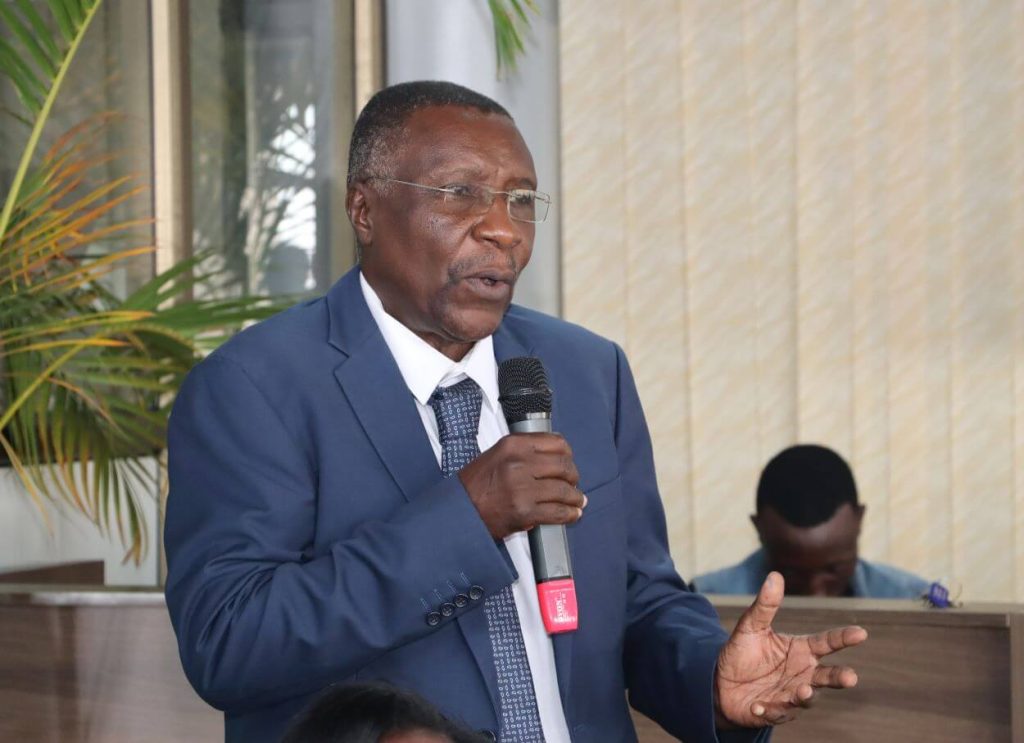
“Globally, low-income countries face a higher burden of communicable diseases such as malaria, tuberculosis, and HIV/AIDS,” Dr. Lugemwa noted. “Despite a significant global decline in these diseases, they remain prevalent in countries like Uganda, where communicable diseases account for over 50% of morbidity and mortality.”
Malaria diagnostics primarily rely on tools like mRDTs, blood slide microscopy, and PCR tests, which are either expensive or not widely available. Similar challenges exist for other diseases such as cancer, tuberculosis, HIV/AIDS, and intestinal parasites, which are diagnosed through methods that may not be accessible at lower-level health centers.
Dr. Lugemwa highlighted the promise of Makerere University’s AI Health-Lab in addressing these diagnostic challenges. “AI tools could revolutionize the accuracy and accessibility of disease diagnosis,” he said. “From improving malaria diagnostics to streamlining cancer screening and diagnosis, AI has the potential to transform healthcare delivery in Uganda.”
Furthermore, Dr. Lugemwa discussed the role of AI in predicting disease patterns affected by climate change, such as malaria, and the importance of electronic health records (EHRs) in improving patient management and healthcare delivery.
“In summary, AI Health-Lab is poised to be a game-changer for Uganda’s healthcare system,” Dr. Lugemwa emphasized. “It aligns with Makerere University’s mission to ‘Build For the Future’ and addresses the Alma-Ata Declaration’s call for local tools that are readily available, accessible, affordable, and user-friendly. The integration of AI in healthcare is not just a technological advancement but a critical necessity for improving health outcomes in Uganda.” Lugema stressed
Makerere University’s Role
Representing Makerere University’s Vice Chancellor, Prof. Edward Bbaale, Director of the Directorate of Graduate Research and Training, expressed pride in the university’s achievements. He underscored Makerere’s proactive steps in promoting AI, including establishing dedicated AI labs, integrating AI courses into the curriculum, and fostering partnerships.
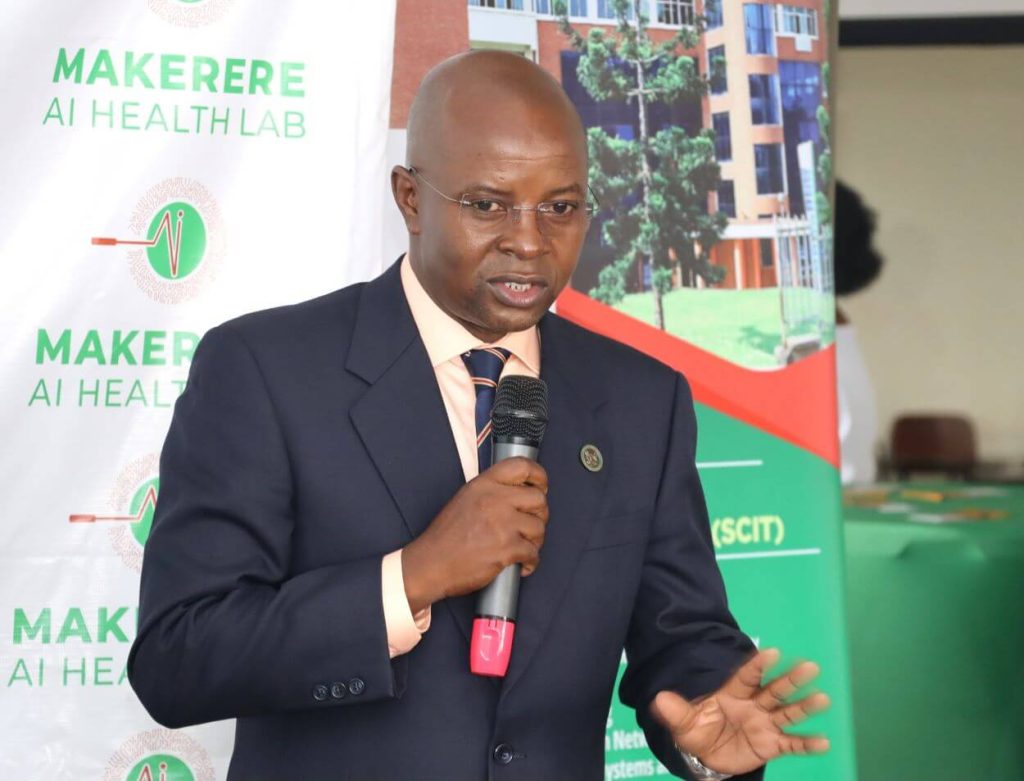
“The establishment of the AI Health Lab is the culmination of a vision that aligns with Makerere University’s mission to be a thought leader in research, innovation, and academic excellence,” Prof. Bbaale stated. He highlighted the lab’s role in fostering interdisciplinary collaboration and innovation, with potential applications ranging from predictive models for disease outbreaks to personalized treatment plans.
Prof. Bbaale also lauded groundbreaking projects spearheaded by Makerere University’s College of Computing and Information Sciences. These include the AirQo project, which deploys low-cost air monitoring systems, and AI-based tools for agricultural disease tracking and medical diagnostics. Notably, the AI Lab, under Dr. Rose Nakasi’s leadership, secured a $1.5 million grant from Google for the Ocular project, automating diagnoses for Malaria, Tuberculosis, and Cervical Cancer.
To the students and researchers, Prof. Bbaale urged them to seize the opportunities presented by the AI Health Lab. “This lab is not just a facility; it is a beacon of possibilities. Engage deeply with the work, collaborate across disciplines, and be bold in your pursuit of solutions that can change the world,” he encouraged.
He also outlined the university’s commitment to moving the entire research value chain from conceptualization to commercialization, ensuring that research translates into products and services that benefit communities.
The launch of the AI Health Lab at Makerere University signifies a significant leap forward in Uganda’s healthcare sector. With continued support and collaboration, this initiative promises to harness the power of AI to improve health outcomes, making a tangible difference in the lives of many. As Dr. Zawedde concluded, “Let us embark on this journey with optimism and determination, knowing that our efforts today will shape the future of healthcare for generations to come.”Bbaale added
Makerere University’s AI Lab Announces Ambitious Plans for Healthcare Innovation
Makerere University’s AI Lab is embarking on an ambitious journey to revolutionize healthcare through advanced artificial intelligence (AI) technologies. Dr. Rose Nakasi, the project leader, unveiled the lab’s comprehensive strategy aimed at addressing critical health challenges and improving patient outcomes through innovative AI solutions and interdisciplinary collaboration.
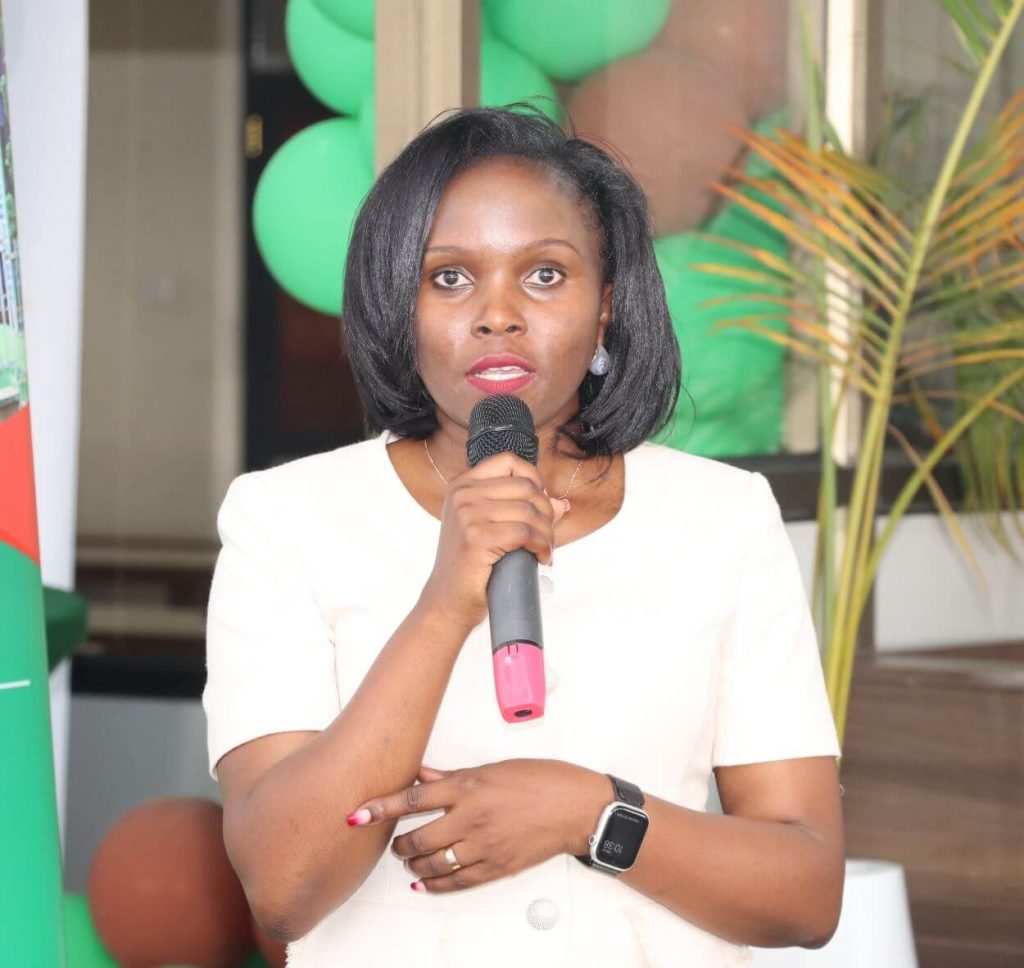
In her presentation, Dr. Nakasi emphasized the lab’s vision of “Transforming Healthcare Through Innovative AI Solutions” and its mission “To drive innovation in artificial intelligence research to effectively address and overcome pressing health challenges.” The lab’s approach focuses on developing practical AI applications, fostering interdisciplinary collaboration, and deepening the understanding of AI’s transformative potential through rigorous research and evaluation.
Among the key projects highlighted by Dr. Nakasi is the Ocular Project, a decision support tool designed to reduce diagnosis time and improve accuracy. Supported by a recent $1.5 million grant from Google, this project aims to automate diagnoses for diseases such as Malaria, Tuberculosis, and Cervical Cancer. Additionally, the DS Malaria project focuses on in-field automated screening trials to enhance malaria diagnosis, while initiatives like curating datasets for malaria diagnostics and digital Pap smear images aim to improve the accuracy and efficiency of disease screening.
Looking ahead, Dr. Nakasi outlined the lab’s vision for continued innovation and growth, including addressing challenges in the health sector and collaborating with regulators to refine and develop new approaches for healthcare needs. She highlighted the lab’s commitment to nurturing the next generation of AI and healthcare experts, with a growing team of PhD and master’s students.
“With more innovation and focus, we aim to address the most pressing healthcare challenges and make a lasting impact on our communities,” Dr. Nakasi stated. Makerere University’s AI Lab, under her leadership, is poised to lead the way in integrating AI into healthcare, reflecting a strong commitment to leveraging technology for the betterment of society.
The opening ceremony was marked by a congratulatory address from the Principal College of Computing and Information Sciences Prof. Tonny Oyana, who lauded Dr. Rose Nakasi and her team for their exemplary research stewardship.
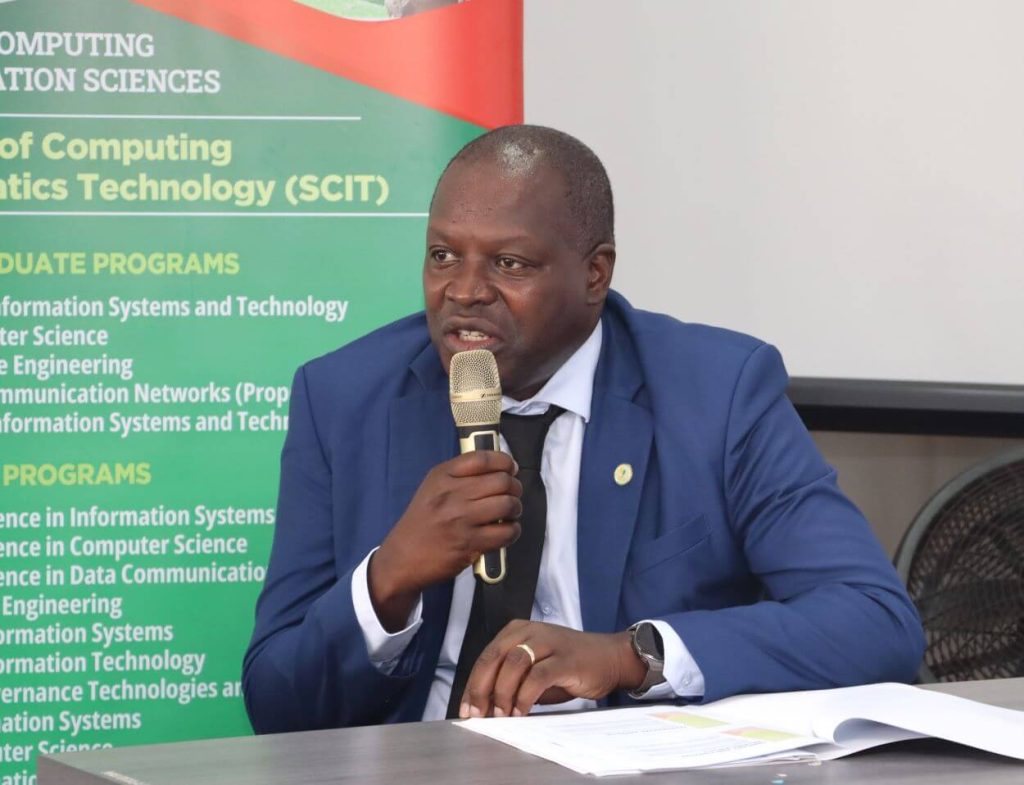
Oyana said the inauguration of this facility marks a significant step forward in the college’s commitment to advancing research and development in artificial intelligence, ensuring that it remains at the forefront of technological innovation
“Congratulations to Dr. Rose Nakasi and her team for their excellent research stewardship,” Prof. Oyana stated. He emphasized the lab’s potential to serve as a dynamic environment for academic growth and experimentation. “Use the new lab to learn, test, grow, and nurture academic talent,” he urged the attendees.
Prof. Oyana also highlighted the lab’s role in promoting interdisciplinary activities. “Use the lab to carry out synergistic activities that promote AI in health,” he said, stressing the importance of integrating artificial intelligence with healthcare advancements.
The facility is expected to become a cornerstone for building sustainable academic and professional relationships. “Use the lab to grow enduring pipelines and long-lasting academic activities and friendships among students and scientists,” Prof. Oyana added.
The new AI research lab, equipped with state-of-the-art technology, aims to provide greater hope and opportunities for students and scientists. “Today, we open a new facility that will provide greater hope and opportunities for our students and scientists,” Prof. Oyana concluded.
Sunbird AI Highlights Potential and Pitfalls of AI for Social Good
Prof. John Quinn from Sunbird AI delivered insightful remarks on the application of artificial intelligence (AI) for social good, emphasizing both its potential benefits and the challenges that need to be addressed.
Prof. Quinn outlined several key areas where AI can have a substantial impact. He noted that AI can compensate for the scarcity of experts by providing critical support in fields such as healthcare and education. AI can also enhance data collection and analysis, aiding in better decision-making and resource allocation. Additionally, AI can be used to create detailed maps, aiding urban planning and noise pollution monitoring.
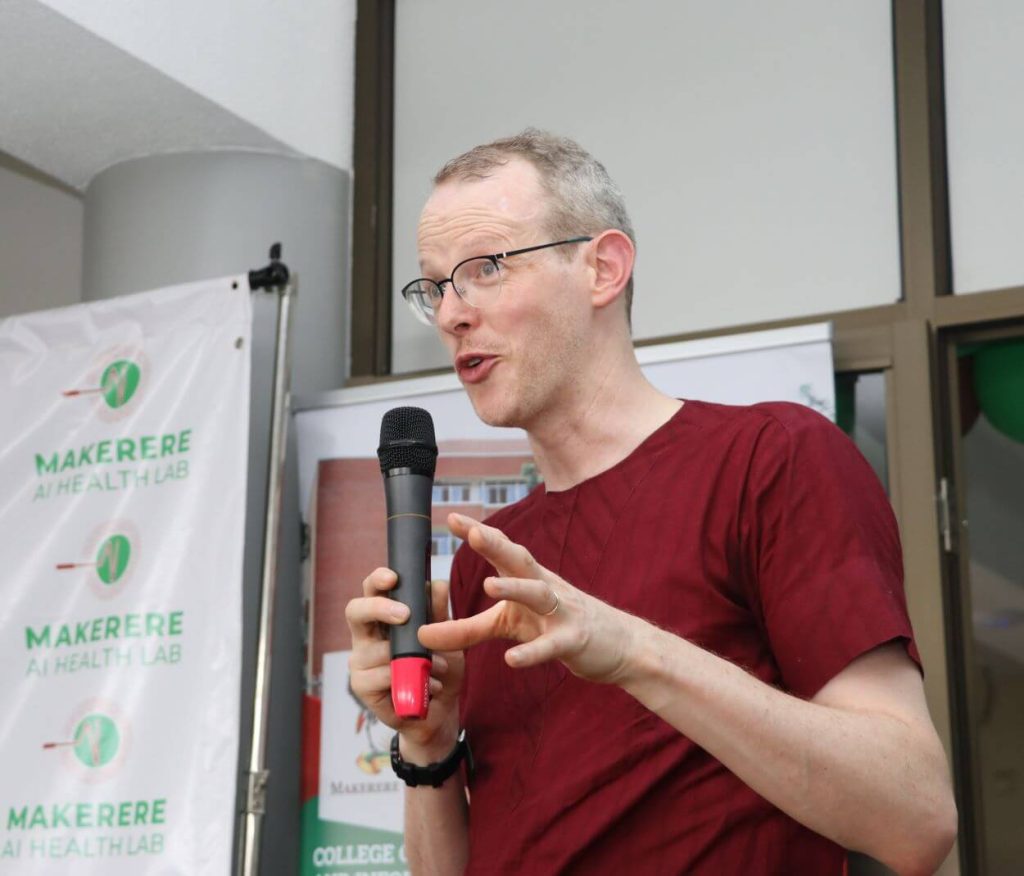
However, Prof. Quinn also highlighted various challenges and unintended consequences associated with AI deployment. He discussed the unexpected difficulties in implementing AI solutions, including technical and human factors.
Technical challenges include limitations of power, network, and devices, which may hinder the deployment of advanced AI technologies in many regions. Furthermore, comprehensive end-to-end solutions might be required, which can be complex and resource-intensive. The lifespan of AI projects can often outlast the typical lifespan of startups or academic projects, posing sustainability challenges. Ensuring long-term functionality and support for AI systems is crucial.
Human factors also play a significant role in the challenges faced by AI deployment. Identifying the right problem from a distance can be challenging, necessitating local insights and collaboration. Successful AI projects often require significant organizational effort beyond the technical work. Building and maintaining trust among various stakeholders is essential for effective collaboration.
Prof. Quinn also addressed the unintended consequences of AI implementation. He pointed out that AI systems can perpetuate or even exacerbate existing biases if not carefully designed and monitored. Without equitable access to AI technologies, existing inequalities can be deepened. Relying on new technologies can create vulnerabilities if the infrastructure is not robust. An excessive focus on prototyping, referred to as “pilotitis,” can consume resources without leading to scalable solutions. The introduction of AI technologies often brings new ethical dilemmas that need to be addressed. Additionally, issues with the quality and representativeness of training data can lead to inaccurate or biased AI models.
Prof. Quinn’s remarks underscored the dual-edged nature of AI in social applications. While AI has the potential to address significant challenges and improve lives, it also brings technical, organizational, and ethical challenges that must be navigated carefully. As AI continues to evolve, stakeholders must work collaboratively to harness its benefits while mitigating its risks.
Testimonials Highlight the Impact of AI in Healthcare Diagnostics
Alfred Andama, reflecting on the journey from 2014 to 2024, shared compelling testimonies from Mulago Hospital, Makerere University College of Health Sciences (MakCHS), and other lower health facilities regarding the integration of artificial intelligence (AI) in healthcare diagnostics.
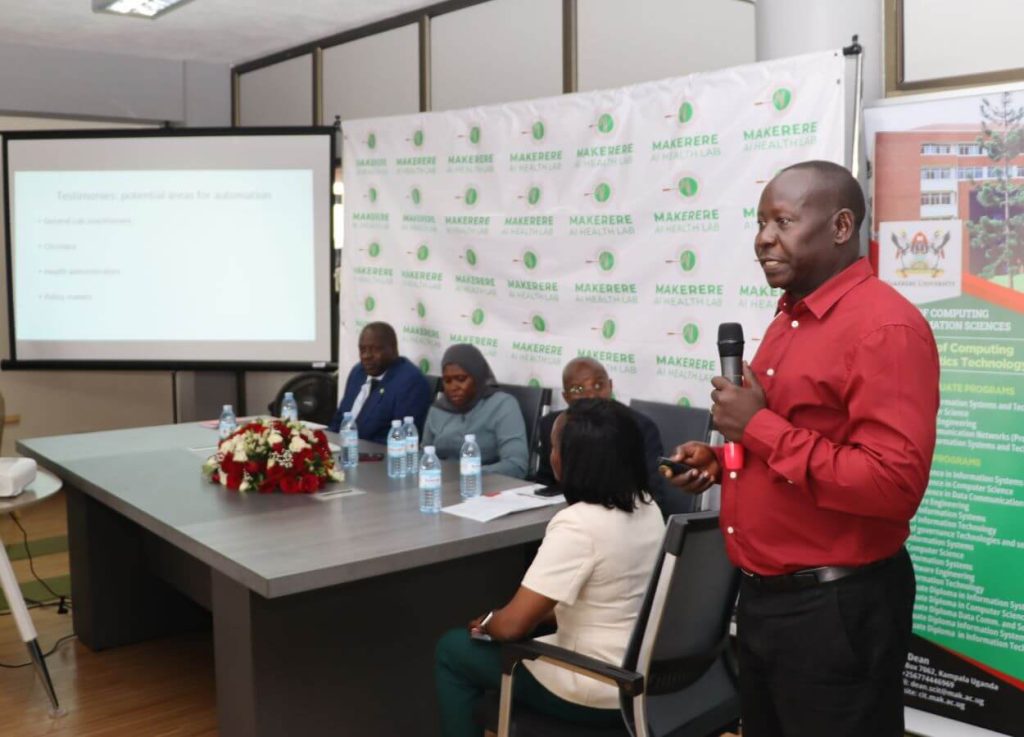
He said Initial Target Diseases primarily centered on malaria, tuberculosis, and intestinal parasites. During data collection at various labs, Andama and his team encountered enthusiastic groups of lab practitioners eager to embrace AI for improving diagnosis.
At health centers up to level III, where young lab technicians and technologists were predominant, the prospect of using mobile applications for diagnosis elicited genuine excitement.
Andama confirmed the feasibility of utilizing smartphones at the lowest levels for diagnosis, addressing a crucial question raised by stakeholders.
“Clinicians expressed interest in the reliability and accuracy of AI-driven diagnosis tools. They sought clarity on decision-making processes compared to human judgments.
Health administrators were concerned about personnel shortages and how AI could alleviate the burden. The adoption of AI microscopy could potentially reduce the time spent on malaria smear microscopy by 25%.” Said Andama
Policy-makers according to Andama focused on affordability and feasibility, particularly for rural areas. The adaptability of AI tools to existing smartphone and microscope infrastructure was seen as a promising solution.
The discussion he said, expanded to the potential deployment of AI in sickle cell diagnosis, blood cancers, urinary tract infections, and respiratory disease smears, indicating broader applications beyond the initial scope.
He reported that Mulago hospital under the College of Health Sciences is already utilizing AI in various capacities, such as analyzing cough samples to differentiate between tuberculosis patients and those with normal cough.
Andama’s testimonies underscore the growing acceptance and implementation of AI in healthcare diagnostics, promising improved efficiency and accuracy in disease detection and treatment.
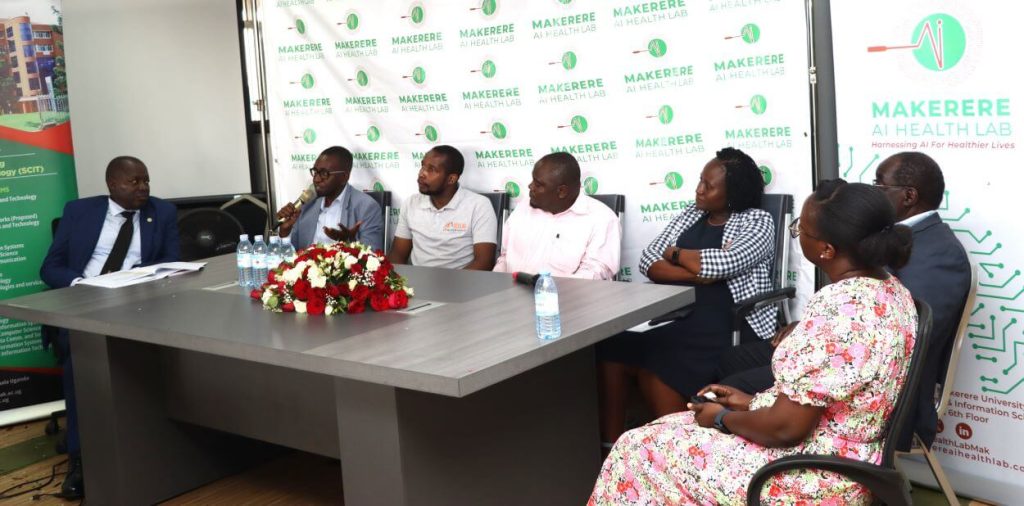
The inauguration was highlighted by panel discussions and plenary sessions on “Leveraging AI for a Healthier Future: Practical Solutions for Africa.” Notable speakers included Prof. Micheal Kawooya, Director of ECUREI; Assoc. Prof. Engineer Bainomugisha, Head of the Department of Computer Science at Makerere University; Mr. Sumba Solomon from the Ocular Project; Ms. Sylivia Nabukenya from the Infectious Disease Institute at Makerere University, Dr. Joyce Nakatumba Nabende of the AI Research Lab; and Lwasa Baker from Rocket Health.
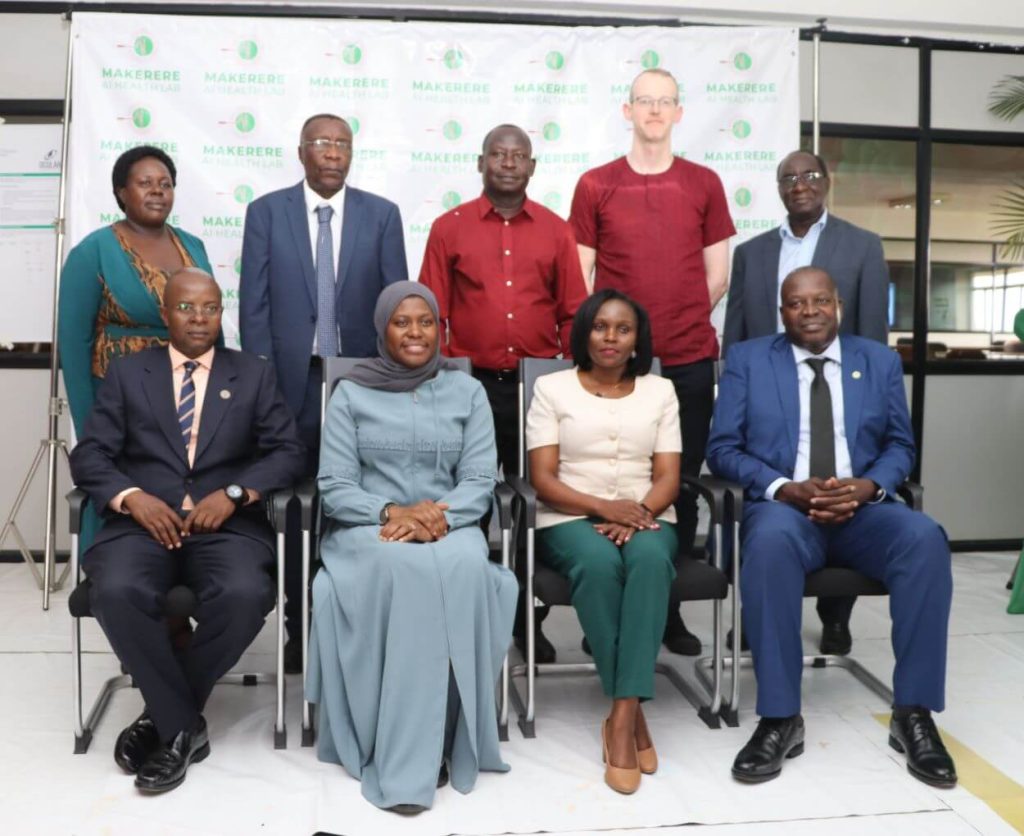
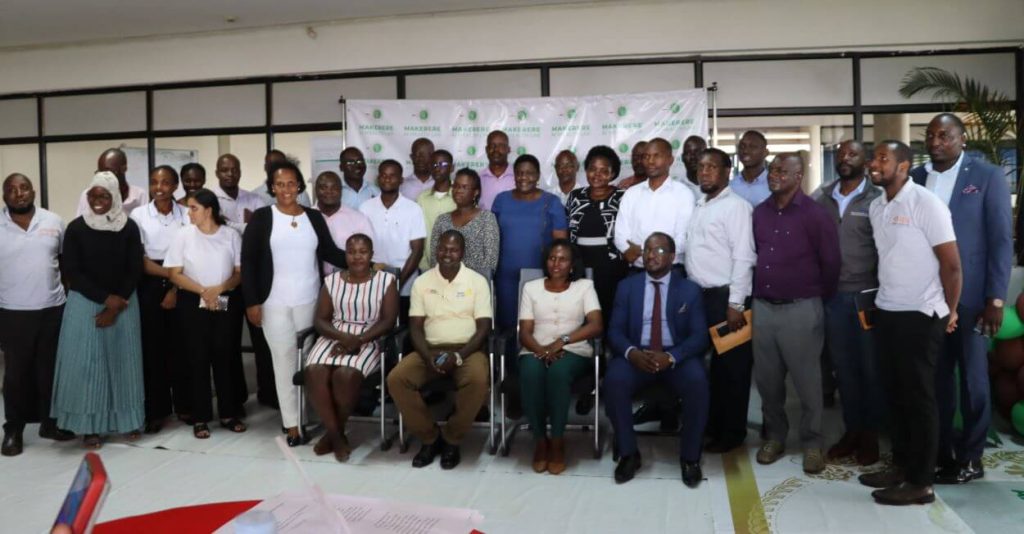
Trending
-
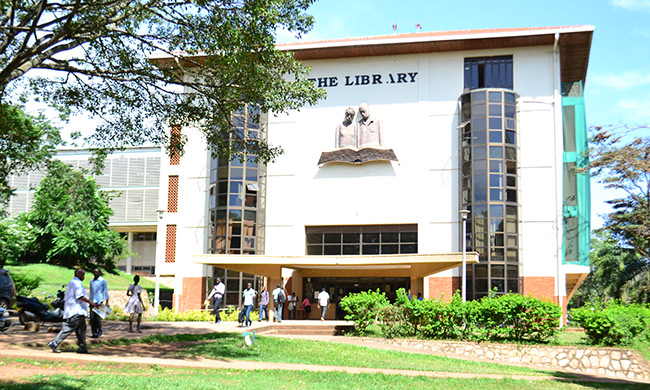
 General1 week ago
General1 week agoDiploma/Degree Holders Admission Lists 2024/25
-
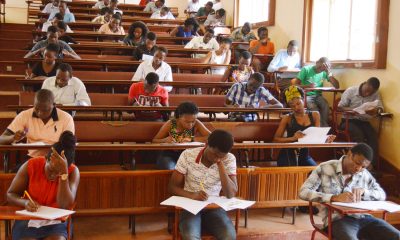
 General1 week ago
General1 week agoAdvert: Mature Age Entry Scheme – Private Sponsorship 2024/2025
-

 General5 days ago
General5 days agoProf. Buyinza Mukadasi Appointed Acting DVC Academic Affairs
-

 General1 week ago
General1 week agoAfrican Futures Research Leadership Program: Cohort 5 – Call for Scholars
-
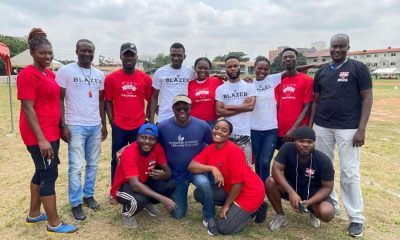
 General1 week ago
General1 week agoNow Open: CADFP Project Requests
